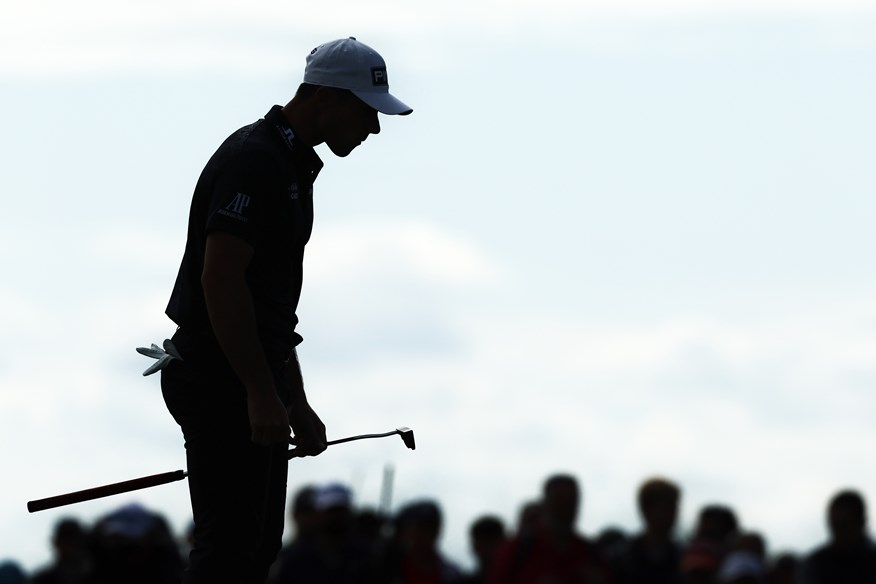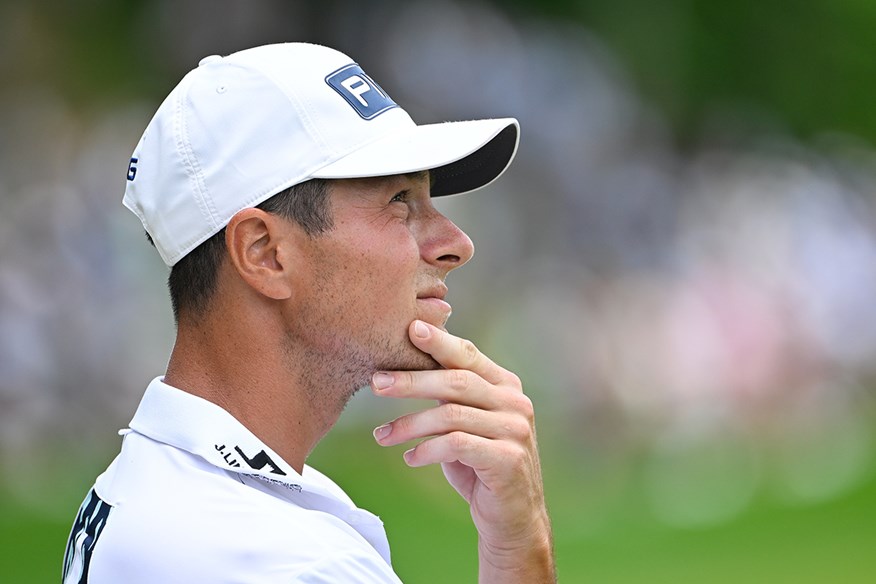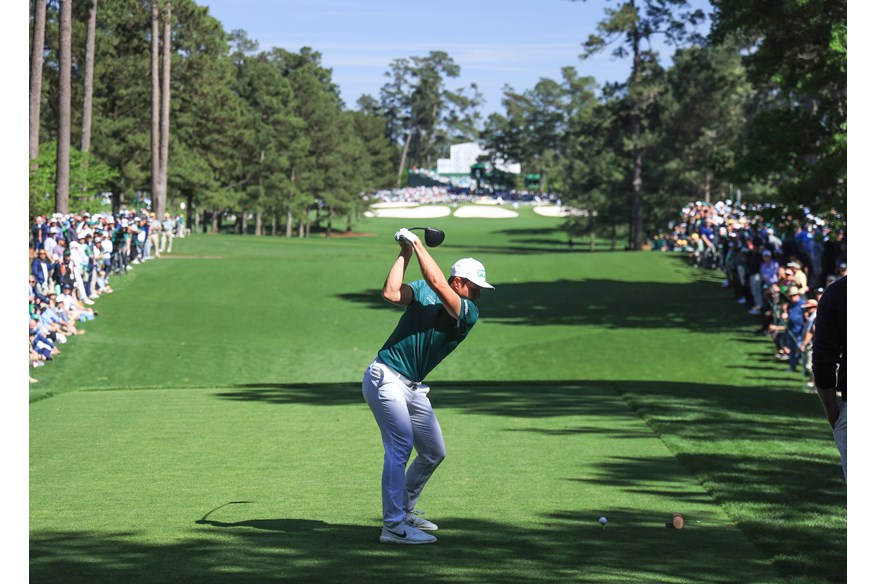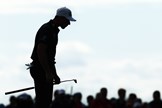This Ryder Cup star says he’d rather skip a tournament than grind to make the cut
Last updated:

Viktor Hovland opens up about swing struggles, chasing progress, and why he’d rather stay home than show up without full confidence in his game.
Ahead of the PGA Championship at Quail Hollow, Viktor Hovland, always candid and refreshingly honest, provided a rare glimpse into what it really means to work on your golf swing – and how it feels when you can’t find the magic move.
“If you’re not able to compete, at least for me, I don’t want to be out there and play,” he admitted. “I’m not trying to just grind to barely make the cut. That’s not fun. I’d rather spend that week trying to get better.”
It was a moment of honesty that might raise eyebrows – especially in a world where players are reluctant to show any weakness – but Hovland’s always been willing to lay his cards on the table. Even when he feels he’s holding a pair of duds.
‘I almost didn’t play last year — and I almost won’
It’s not that Hovland doubts his ability. In fact, he’s brimming with quiet confidence – even when things aren’t clicking.
“I almost didn’t play last year [at the PGA Championship], and I almost won the tournament,” he said, reflecting on a third-place finish. “So I look at that as a huge win. I didn’t feel good about my game at all, and I still nearly pulled it off.”
It’s easy to watch the world’s best players striping balls on TV and assume every swing feels like a softly spoken poem covered in chocolate sauce, but Hovland’s admission is refreshing for any golfer who’s struggled with their technique (aka every golfer who’s ever played the game).
“It’s not fun when you’re out there trying to predict a certain golf shot, and the ball flight does the opposite,” he admitted. “But, even despite that, I don’t doubt my abilities to get the ball in the hole.”

‘Feels change all the time’
One of the most revealing moments of his press conference came when Hovland was asked about what it takes to rewire a swing – to implement something in your motion that you know is right but just doesn’t feel good.
“Feel is so subjective,” he said. “Feels change all the time. I can’t rely on the same feels now as I used to. So I try to wire my brain to new ones. If I see that the ball is doing what I want it to do, it’s easier to get over the weirdness of how it feels.”
That’s a message that should hit home for any amateur who’s tried to make a change and panicked when the swing suddenly felt alien. Hovland’s point? Don’t trust the feel – trust the result.
“I try to separate what I feel and what the ball is objectively doing, because that’s ultimately what we’re trying to do. We’re trying to play good golf,” he said. “If you can’t equate your feels to a good shot, then that’s also no good.”
Many of us assume that pros are so good because they hit hundreds, if not thousands, of balls a day, but Hovland insists that’s no good if you’re not practising the right things.
‘You’re just ingraining the movement you already have’
For Hovland, this isn’t just about tweaking one position or chasing a prettier takeaway. It’s a full-on mechanical overhaul – a process of rebuilding the swing to be more predictable and trustworthy.
“I’ve just had a move in my swing the last five, six years that’s been so effortless. It was easy to predict,” he explained. “And now, suddenly, it’s not doing that. So I have to figure out how to train that old move back in there.”
And here’s where the myth of “just hit more balls” breaks down.
“It’s not necessarily a reps thing,” Hovland said. “You’re just ingraining the movement you already have even deeper. You kind of have to deconstruct it.”
That’s coming from one of the best ball-strikers on the planet – a man who won on the PGA Tour less than two months ago – a reminder that endless range time without a purpose might actually be making things worse.

‘I’m almost addicted to trying to get better’
If your idea of a practice session is hitting three 7-irons into a net before you tee off, this might all sound like a lot of work – but for Hovland, it’s a pursuit of passion.
“I’m almost addicted, in a way, to trying to get better,” he said. “It’s worked out well for me in my career, and I’ve gotten better most of the times I’ve done it. But I’ve maybe been a little too flippant in the past – exploring too many areas at once.”
He’s trying to be more targeted now. Not chasing perfection, but shoring up the one or two flaws that keep him from reaching the level he knows he’s capable of.
“There’s just a couple of key pieces that are preventing me from playing my best golf,” he said. “So I’m not content with playing the way I am right now. I have to make changes.”

‘This course doesn’t let you hide’
Quail Hollow isn’t exactly the place to show up with a swing you’re unsure of. The closing stretch, famously dubbed “The Green Mile”, is among the toughest in major championship golf.
“This course doesn’t allow you to hide,” Hovland said. “You’ve got to drive it long and straight. And that’s usually the best part of my game – but, lately, it hasn’t been.”
When asked what he’s working on most, his answer was clear: “I’m trying to go back to my old reliable fade off the tee, but the club’s just not moving in a way that lets me do that.”
Right now, the double misses – left and right – are creeping in. “That’s a tough place for me to be. If I can get the ball consistently in the fairway, I can still score. My iron play’s been solid this year.”

A relatable reminder: Even the best are still figuring it out
So, if you’re an amateur stuck in the middle of a swing change – wondering why nothing feels right, questioning whether it’s worth the effort – Hovland’s words should offer some comfort.
This isn’t a game where anyone, even the top-10 players in the world, ever arrives at perfect. It’s a game of constantly recalibrating. Rebuilding. Relearning.
And sometimes, as Hovland has shown us, the smartest play isn’t to grind it out on the course – it’s to step back, do the work, and trust that the game will come back to you.
After all, if a multiple PGA Tour champion and Ryder Cup star can rebuild his swing under major pressure and a dozen TV cameras, you can survive one awkward range session next to Alan from accounts.
